Presidents of the European Academy Networks meet EU Commissioner Carlos Moedas and the High Level Group of Scientific Advisors
On 17 March, the Presidents of the five European Academy Networks came together in Brussels to meet with Carlos Moedas, the EU Commissioner for Research, Science and Innovation, and with the High Level Group of Scientific Advisors (HLG).
The European Commission’s new Scientific Advice Mechanism (SAM) includes a prominent role for European academies. The Commission is prepared to fund the five Networks, in the context of a Horizon 2020 call, with up to € 6 Million over four years in order to provide independent, evidence-based policy advice from the academies in Europe.
The Consortium, consisting of Academia Europaea, ALLEA, EASAC, Euro-CASE and FEAM uniting over 100 member academies, discussed models of their future cooperation with the Commission and the High Level Group, including the following issues:
- A structured dialogue between the Consortium, the HLG and the European Commission should be established in order to discuss and agree on subjects for scientific evidence-based policy advice from the academies;
- A timely delivery of advice was agreed, ensuring that scientific results from the academies` work contribute to the opinion-forming and policy-making process;
- The consortium will provide support to the HLG for the two topic requests from the European Commission (“Closing the gap between light duty vehicle real-world CO2 emissions and laboratory testing” and “Cybersecurity”).
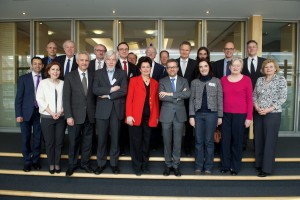
Image: The Presidents of the Consortium with Commissioner Carlos Moedas and the members of the High Level Group; © European Union, 2016, Reference: P-031230/00-10
The meeting was attended by the Presidents of the European Academy Networks Sierd Cloetingh (Academia Europaea), Günter Stock (ALLEA), Jos van der Meer (EASAC), Reinhard F. Hüttl (Euro-CASE), and Françoise Meunier (Vice-President of FEAM). Alongside Commissioner Carlos Moedas and the members of the HLG, the European Commission’s participants included Director General Robert-Jan Smits and the Head of the SAM Unit Johannes Klumpers.
The Presidents of the European Academy Networks re-iterated the importance of truly interdisciplinary approaches towards today’s societal challenges which the academies are in a position to provide. With their scientific expertise, the European academies will contribute to the debates on risks and benefits of new advances, support the formulation of policies, and help enhance public confidence in science policy advice.
Background information on the Scientific Advice Mechanism (SAM)
The overall objective of the Scientific Advice Mechanism (SAM) is to provide evidence-based advice to the Commission that:
– is independent of institutional or political interests,
– brings together evidence and insights from different disciplines and approaches,
– takes into consideration the specificities of EU policy making (e.g. different national perspectives and principles of subsidiarity),
– is transparent.
The Scientific Advice Mechanism is designed to complement the current system of in-house scientific advice (e.g. Joint Research Centre, EU research funded through Horizon 2020, EU agencies) and external expertise on certain topics. Read more: http://ec.europa.eu/research/sam/index.cfm
The five European Academy Organisations
– Academia Europaea: The only European wide Academy with individual membership. It manages its scholarly interests through a section structure. On election, all members are assigned to a section. At the present time there are twenty academic sections. Sections are grouped into one of four classes: Humanities and Arts, Social and related Sciences, Exact Sciences, and Life sciences. www.ae-info.org/
– ALLEA: The European Federation of Academies of Sciences and Humanities brings together almost 60 Academies in more than 40 countries from the Council of Europe region, encompassing the full range of scientific disciplines from the natural sciences, life sciences, social sciences, to arts and humanities. www.allea.org
– EASAC: the European Academies Science Advisory Council is the network of the 25 National Science Academies of the EU Member States and of Norway and Switzerland. It provides science-based advice in the areas of Environment, Energy and Biosciences. www.easac.eu
– Euro-CASE: the organisation of the Academies of Engineering, Applied Sciences and Technology from 22 European countries, with a special focus on innovation, energy and bioeconomy policy. www.euro-case.org
– FEAM: the Federation of European Academies of Medicine brings together 18 national Academies of medicine and medical sections of national Academies of sciences. www.feam-site.eu

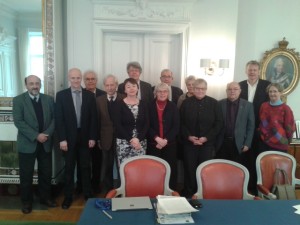
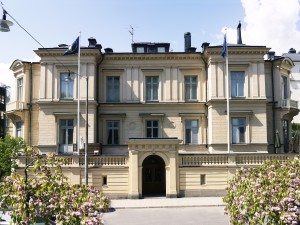 Queen Lovisa Ulrika founded the Royal Swedish Academy of Letters, History and Antiquities 20 March 1753 to promote research and other activities in the humanities, theology, law, and social science disciplines, as well as stewardship of cultural heritage sites.
Queen Lovisa Ulrika founded the Royal Swedish Academy of Letters, History and Antiquities 20 March 1753 to promote research and other activities in the humanities, theology, law, and social science disciplines, as well as stewardship of cultural heritage sites.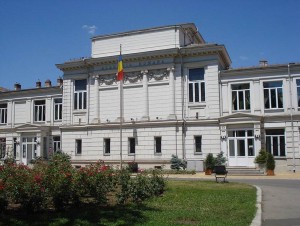 The participants were warmly welcomed to the Academy by the Academy’s President Professor Ionel Valentin Vlad. Throughout his career as a physicist, Professor Vlad has always sought to engage in international scientific cooperation and was, thus, highly appreciative of ALLEA’s visit to his Academy. To start off the meeting, ALLEA President Günter Stock informed the participants about recent ALLEA activities and the Board members received an update on the status of membership dues for the year 2015 as well as an outlook for the year 2016. Furthermore, the participantsdiscussed the progress made in the preparation of a European Commission Horizon 2020 call, in cooperation with a consortium of academy networks, to participate in SAM.
The participants were warmly welcomed to the Academy by the Academy’s President Professor Ionel Valentin Vlad. Throughout his career as a physicist, Professor Vlad has always sought to engage in international scientific cooperation and was, thus, highly appreciative of ALLEA’s visit to his Academy. To start off the meeting, ALLEA President Günter Stock informed the participants about recent ALLEA activities and the Board members received an update on the status of membership dues for the year 2015 as well as an outlook for the year 2016. Furthermore, the participantsdiscussed the progress made in the preparation of a European Commission Horizon 2020 call, in cooperation with a consortium of academy networks, to participate in SAM.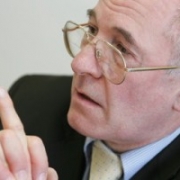
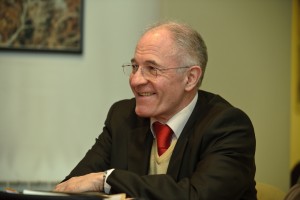 To commemorate his extensive scholarly work on religions in Europe and his reflections on European society, the French philosopher Rémi Brague will be the third scholar to be awarded the All European Academies Madame de Staël Prize for Cultural Values; a prize initiated by ALLEA, the European Federation of Academies of Sciences and Humanities with the friendly support by Stiftung Mercator.
To commemorate his extensive scholarly work on religions in Europe and his reflections on European society, the French philosopher Rémi Brague will be the third scholar to be awarded the All European Academies Madame de Staël Prize for Cultural Values; a prize initiated by ALLEA, the European Federation of Academies of Sciences and Humanities with the friendly support by Stiftung Mercator.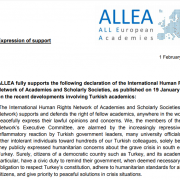
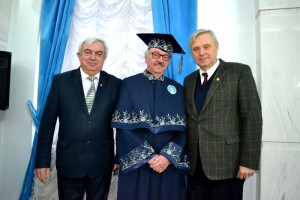
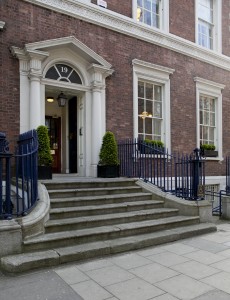
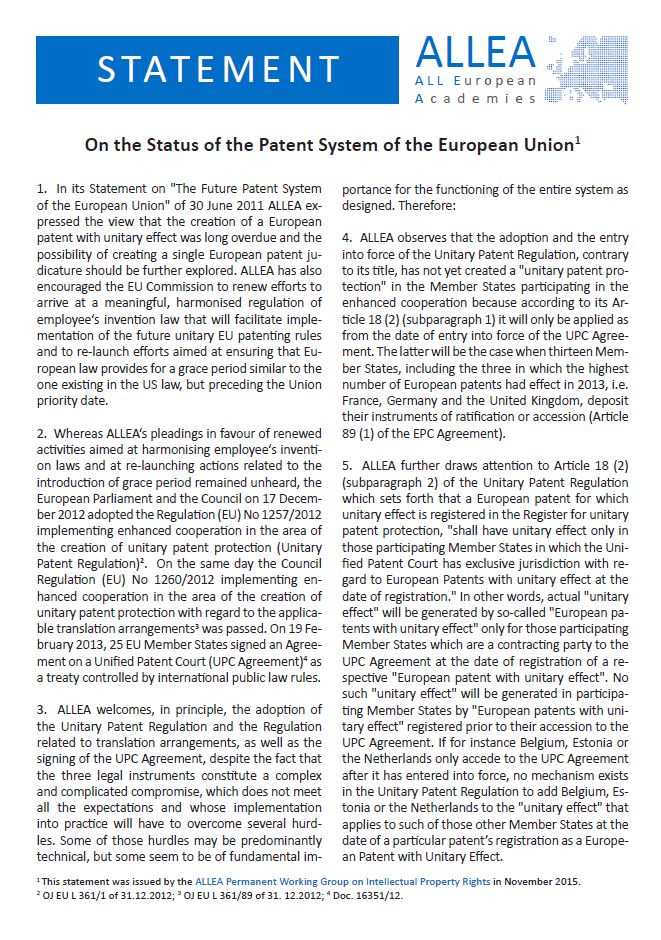
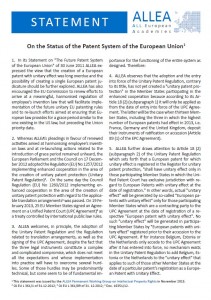 The statement welcomes the introduction of these pieces of legislation “despite the fact that the three legal instruments constitute a complex and complicated compromise, which does not meet all the expectations and whose implementation into practice will have to overcome several hurdles”. It then proceeds to assess the difficulties and deficiencies that will arise in the course of their imminent implementation. For example, the Unitary Patent Regulation and the UPC Agreement reveal a problematic situation in which the validity of “unitary effect”-holding patents is dependent on the date of their respective Member State’s accession to the UPC Agreement.
The statement welcomes the introduction of these pieces of legislation “despite the fact that the three legal instruments constitute a complex and complicated compromise, which does not meet all the expectations and whose implementation into practice will have to overcome several hurdles”. It then proceeds to assess the difficulties and deficiencies that will arise in the course of their imminent implementation. For example, the Unitary Patent Regulation and the UPC Agreement reveal a problematic situation in which the validity of “unitary effect”-holding patents is dependent on the date of their respective Member State’s accession to the UPC Agreement.